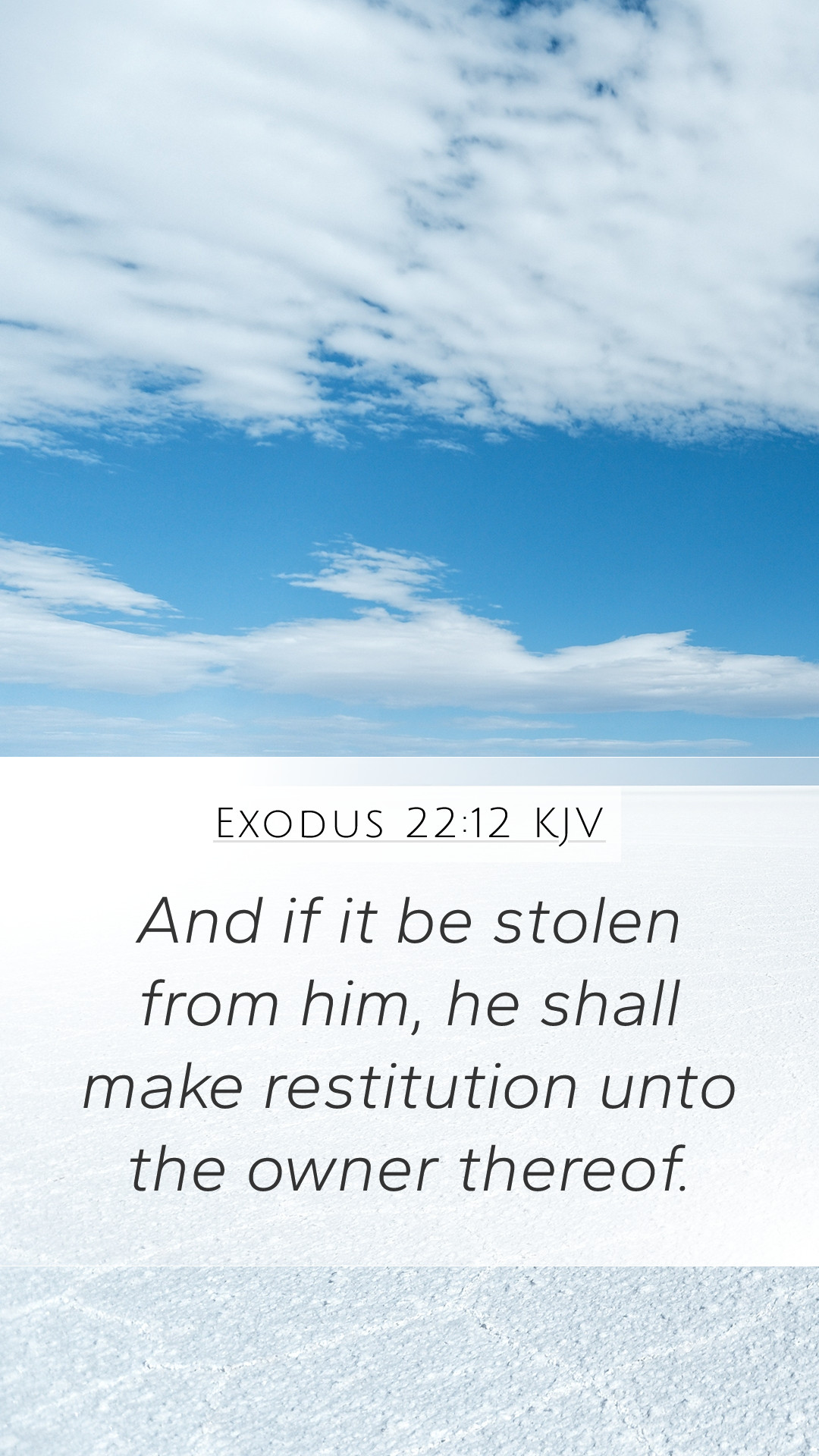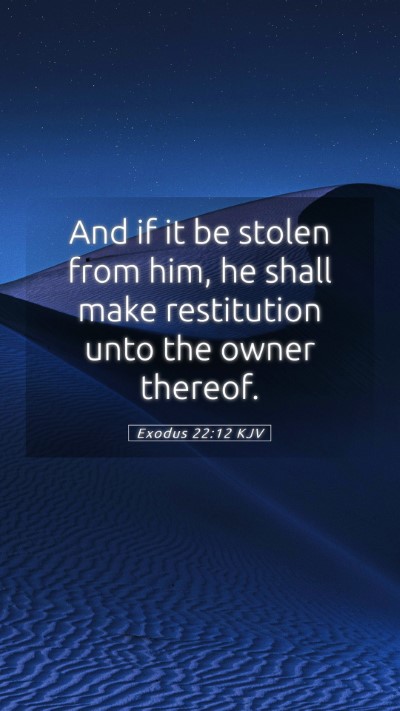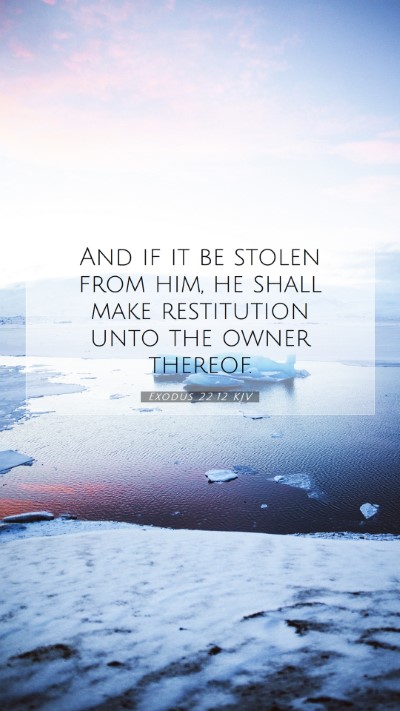Understanding Exodus 22:12
Exodus 22:12 states: "But if it is stolen from him, he shall make restitution to the owner."
Bible Verse Meaning and Interpretation
This verse serves as a legal guideline regarding theft and the responsibility of the person who borrows or keeps someone else's property. Public domain commentaries provide valuable insights into the meaning of this verse:
-
Matthew Henry's Commentary:
Henry emphasizes the moral obligation of individuals to act justly and responsibly when they are entrusted with someone else's property. The verse highlights the principle of restitution, indicating that when a loss occurs, compensation must be provided to the rightful owner.
-
Albert Barnes' Notes:
Barnes elaborates that this directive reinforces the idea of accountability. It teaches the importance of ensuring that those who borrow or take possession of others' belongings must protect those items or face consequences. The call for restitution reflects God's concern for justice in human relationships.
-
Adam Clarke's Commentary:
Clarke notes that this law illustrates the practical application of God's commandments. He remarks that the wider context of the law encourages societal harmony by establishing clear guidelines for interactions related to property. The emphasis on restitution signifies God's desire for fairness and integrity.
Biblical Exegesis and Cultural Context
Understanding Scripture in its historical context is vital. The laws given in Exodus were intended to govern the community of Israel, reflecting God’s character and expectations for His people. In biblical times, property and possessions held significant value, and clear regulations concerning them were necessary for societal stability.
Restitution in Biblical Law
Exodus 22:12 fits into a larger framework that includes various laws concerning theft and property. These regulations aimed to protect individuals and promote ethical conduct in the community.
Comparative Analysis with Other Scriptures
- Exodus 22:1-4: Discusses different scenarios of theft and the restitution required in each case.
- Leviticus 6:2-5: Offers additional guidelines about restitution and confession of sin regarding theft.
- Proverbs 6:30-31: Addresses the consequences of theft and the expectation of restitution.
Applications of Exodus 22:12 in Daily Life
The principles outlined in Exodus 22:12 resonate with contemporary ethical considerations. Here are a few key applications:
-
Accountability:
Individuals should be honest and responsible when entrusted with others' items, recognizing the importance of integrity in relationships.
-
Restitution:
The call for restitution suggests that when we cause harm or loss to others, we should seek to make things right, whether through apologies or compensating for losses.
-
Community Trust:
Maintaining trust within communities hinges on ethical behavior regarding possessions and treating each other’s belongings with respect.
In-Depth Bible Study Insights
For individuals engaged in online Bible study, this verse serves as a practical example of how to study biblical laws and their applications. Utilizing Bible study tools and resources can enrich your understanding:
- Bible Study Guides: Use guides that explore Old Testament laws and their implications for living today.
- Online Bible Study Courses: Engage in structured courses that delve into ethical teachings in Scripture.
- Bible Study Lessons: Focus on how specific verses can be applied in personal and communal contexts.
Conclusion: The Significance of Exodus 22:12
Exodus 22:12 encapsulates critical themes of accountability, restitution, and moral responsibility. By understanding and applying the meaning of this Bible verse, readers can enhance their engagement with Scripture and foster ethical relationships in their communities.
As you explore the meaning of Bible verses, consider the broader implications of the principles provided in Exodus 22:12 for your life and interactions with others.
Cross References
This verse is related to several others that provide a fuller picture of the biblical context:
- Exodus 20:15 - "You shall not steal."
- Exodus 22:1-4 - Laws regarding theft and restitution.
- Leviticus 19:11-15 - General principles of justice and fairness.


